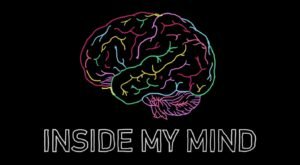
Have you ever gone out into public, pre-quarantine, with the fear that you might recognize someone you know? No one on this planet  wants to do small talk with that dude that sat behind you in geometry class in 2009, right!? Well, what if you had the inability to recognize them? There are people in this world who have a medical phenomenon called, “Prosopagnosia,” or more commonly referred to as, “Face Blindness.” These individuals lack the ability to recognize faces of even the most iconic people. And in some of the worst cases, they can’t even recognize their own face. Although this may be new information to you, this condition is actually quite common. Some studies report that 1 in 50 people have Face Blindness to some degree.
wants to do small talk with that dude that sat behind you in geometry class in 2009, right!? Well, what if you had the inability to recognize them? There are people in this world who have a medical phenomenon called, “Prosopagnosia,” or more commonly referred to as, “Face Blindness.” These individuals lack the ability to recognize faces of even the most iconic people. And in some of the worst cases, they can’t even recognize their own face. Although this may be new information to you, this condition is actually quite common. Some studies report that 1 in 50 people have Face Blindness to some degree.
If you have ever seen a tv show, and they blur out the faces of bystanders in the background, then you have experienced something similar to Face Blindness. The area in the brain responsible for analyzing faces as a whole does not work the way it’s supposed to, so every single time they interact with someone, they may not recognize who they are until they hear their voice. This area in the brain is called the fusiform gyrus, and it could be damaged from trauma, stroke, or infection. It can also just simply deteriorate over time.
 If you look at the picture to the left, it is kind of difficult to recognize who you are looking at. The brain has difficulty identifying the image because that is not how faces are normally processed in the brain. However, when it’s flipped, it becomes fairly obvious who we’re dealing with here. It’s not that they can’t recognize faces because they are blurry, as seen in vision disorders like Macular Degeneration. They just physically can’t process the image in their brain. While this condition is extremely fascinating, it can be quite detrimental to these individuals.
If you look at the picture to the left, it is kind of difficult to recognize who you are looking at. The brain has difficulty identifying the image because that is not how faces are normally processed in the brain. However, when it’s flipped, it becomes fairly obvious who we’re dealing with here. It’s not that they can’t recognize faces because they are blurry, as seen in vision disorders like Macular Degeneration. They just physically can’t process the image in their brain. While this condition is extremely fascinating, it can be quite detrimental to these individuals.
People with this condition have reported feelings of anxiety, embarrassment, and social exclusion due to their diagnosis. People with a severe form of Prosopagnosia could be given a picture of themselves and not know who they are looking at. So, going out into public could create some awkward moments. If someone waves to you while you are at the grocery store, no matter how close, you may not know who they are. While at times I wish this was an excuse I could use to avoid social interactions, this can have great effect on forming meaningful relationships with new people.
There isn’t a treatment for this condition either. The best way to deal with Face Blindness is to find coping mechanisms. For example, individuals with Face Blindness usually recognize people based on their hair style. While the face is unfamiliar to them, they still have the ability to process hair, or lack thereof. In an interview I watched, a person with Prosopagnosia was shown a picture of just a person’s face. Naturally, the subject did not recognize who it was. Little did they know, the face they were looking at was the person who was showing them the picture, sitting right in front of them. Im sure the majority of you could recognize at least 4 of these people, however, people with severe Prosopagnosia wouldn’t know any of them.

As I stated before, this is quite common. It appears to be a spectrum and some people can go their whole life without even knowing they have a mild form of this. But on the flip side, it can be extremely severe. Imagine going your whole life without ever knowing what your own face looks like to other people. The brain is an extremely complex organ and the more we study it, the more insight we will get on the behavior of our own species.



